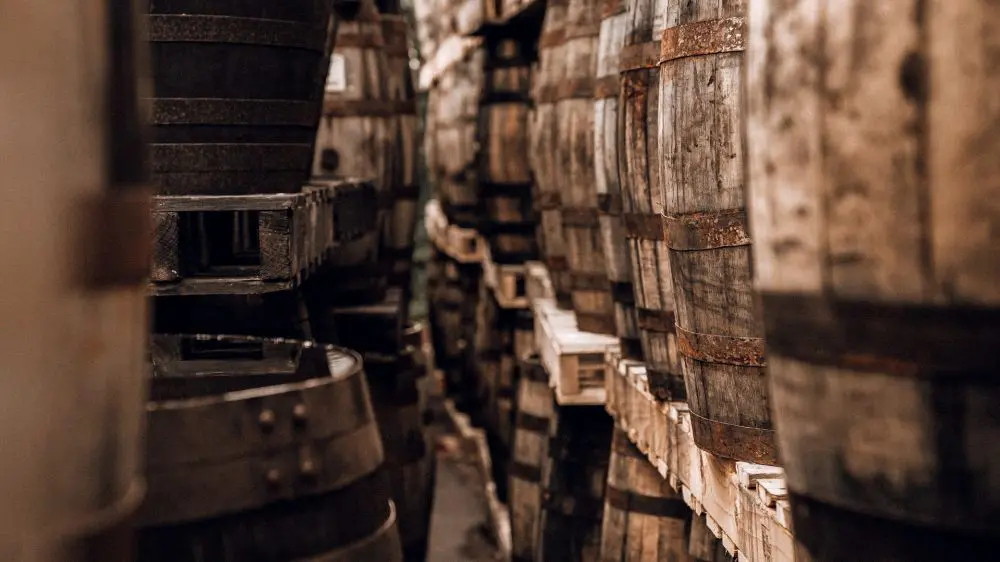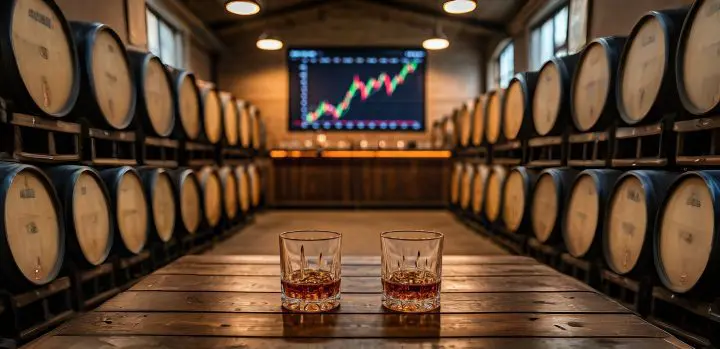
How long will it be before I see a return?
Any investment is safer the longer you hold it, but with Whiskey, that statement couldn’t be more relevant. Whiskey doesn’t pay yearly dividends, so you will not know the exact ROI until you come to exit. However, unlike other assets that can see sudden fluctuations in returns, whiskey is a safer, slow-burning asset that will appreciate in value over time as its rarity naturally increases.
When it comes to seeing a return on your purchase, it largely depends on the type of whiskey you are purchasing, how long you plan to hold onto it and the type of exit that you choose. As a general rule of thumb, the longer you hold onto your whiskey, the greater your return, but this still depends on multiple factors.
For example, Irish whiskey has to age for a minimum of three years to legally be classified as whiskey. However, many clients will choose to keep their whiskey for five years or more in favour of compounding the value of the cask. During this time, your whiskey is ageing and maturing, becoming richer in flavour and increasing in rarity (to find out why rarer casks command higher returns, read our blog ‘why do whiskey casks increase in value.’)
We therefore recommend that clients hold onto their whiskey for a minimum of five years to see a good return on their assets. However, many of our clients choose to hold onto their whiskey for much longer. This allows the whiskey to reach its full potential whilst heightening its scarcity; therefore increasing in value exponentially above the 8 year mark. Currently, only 3% of whiskey is aged 8 years or over, so you know that if you’re able to hold your cask for that period, you’ll be part of what we like to call ‘The 3% Club’ – an elite position to be in as a cask holder. Naturally, these barrels attract a high demand.
Scotch whiskey also has the same minimum maturation legislation as the Irish market of 3 years before being able to call the spirit Whisky and the Straight Bourbon cask market has a minimum of two. Both of these markets are very stable, these two markets also have a well established and proven secondary market. We encourage our Scotch clients to hold for 8 to 20 years and Bourbon clients to be holding for 5 to 10 years.
The length of time can also depend on the distillery you purchase from. For example, if you are looking for a much longer term hold, we have just released casks of Canadian whisky from a distillery called Highwood Caldera in Alberta, Canada. This distillery produces 20 year old whisky for their award winning brand, Ninety 20. We therefore are including storage and insurance for 20 years as standard, as the distillery will be buying back our clients whisky to be bottled for this brand. However, they also have 5 and 10 year old whiskies, so the length of hold is of course dependent on the exit strategy of each client.
However, if your looking for a quicker return you may wish to look into the mature cask market or even the ultra rare bottle space.

